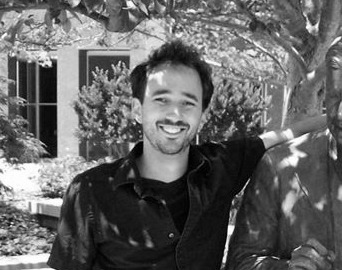Whenever I feel like annoying my girlfriend, I bombard her with cryptic quotes. My personal favorite comes from the one and only Bob Dylan, who famously said, “All I can do is be me, whoever that is.”
(Seriously, Dylan is full of gems. “The sun’s not yellow, it’s chicken” is one of the best lines ever uttered in a song, but that’s another discussion altogether.)
Of course, I haven’t gone off quoting Dylan in the context of this column without an ulterior motive.
It has become evident to me that, thanks to the complexities of the Internet and the anonymity—or even the veil of a screen name—granted us by digital technologies, we increasingly can’t be sure who we are, or how to define what it means to be the person we are.
It started about a month ago, when I was out with a friend of mine. His phone vibrated and he asked me to pick it up and see if his girlfriend had texted him. She had, to say “I love you.” He turned to me and told me to text her back.
“What do you want me to say?”
“Tell her I love her.”
So I did, typing in “I love you” and sending the message along. Then a really weird thought hit me: I had just told his girlfriend that I loved her, but I did so using his identity. She would think nothing of it. To her, it was only her boyfriend responding, but the truly bizarre part to me was understanding that perhaps she knew I was texting for him—since he never texts and drives—and perhaps she didn’t care that I was the one saying “I love you” because at that moment in time, in using his iMessage account and responding to her under his screen name, I had become him.
It’s possible that I am overthinking things, as I am most certainly wont to do. It is also possible that I am unusually conscious and protective of my own online identity. I have a difficult time even letting someone look at my phone screen, let alone hold it and send a message.
I suppose the logical question is not so much whether my concerns are valid, as it is whether my “I love you” text, sent on behalf of my friend, has any serious implications… Which, of course, I will probably argue is indeed the case, since I have a tendency to discuss the topic at hand as though it were the most important subject ever, under the most crucial of circumstances—which I am convinced is actually a Christopher Nolanism that I have adopted by excessive exposure to his films. (I can’t go one column without mentioning him, can I?)
In all seriousness, it’s not like identity was a simple concept before digitization. I have always been fascinated by identity, by the creation of ourselves—and it is indeed a creation; there is very little inherent about identity, and about the people we choose to be. For most of my life, I was a very average individual, until one day in high school, to earn extra credit, I dressed up. I didn’t stop. I still dress up every school day, and so my identity has become “the guy who wears a tie every day.” That is what people see when they look at me; indeed, it is rather superficial, is it not? Identity, in so many respects, is constituted not just of the identity we develop for ourselves, but the identity impressed upon us by others. I have long wondered what the reaction would be on a social level if I went about changing my identity.
What if I started listening to death metal and grew my hair out and got a million different body piercings? The chances of that happening are about the same as the chances of Andy Kaufman actually still being alive, but it’s a good hypothetical, because I could easily embrace that identity. I could do it tomorrow, and what would people say? The truth is that in spite of the fact that I would still fundamentally still be Damian Hondares, still be the same person, I would never be looked at as the same person.
In a roundabout way, I guess this means I ascribe to some extent to the Erving Goffman school of performed selves, and in many respects I do. It’s fascinating. But it also indicates that we performed our identities long before the Internet enabled us to do so with anonymity and/or pseudonymity.
I was presenting my Cyberutopianism and Politics paper at the university’s student symposium recently when I received a question from one of the members in the audience. His question, more or less, was how anonymity proved challenging in my research, specifically with regards to quoting a member of Anonymous, and knowing whether or not that person is truly who they say they are, with the ties to the group that they say they have. It was a great question. My answer was that I quoted Anonymous members who were friends of scholars/journalists whose opinions were pivotal in my research, and who I knew I could trust. But that does not remove the unmistakeable validity of such a question, and the challenge that really is posed by the tangled web of identities online.
Visit any forum, for any organization, and you will understand what I mean. How do we know these comments are actually from Anonymous members, or any other group? How do we know? I could form an account tomorrow under a fake name and post some terrible comments on an Anonymous forum just to make the group look bad (even though they do pretty well at that on their own). How does anyone know that those commenters are actually the people they say they are? Why do we allow anonymous or pseudonymous users of the Internet to cement our thinking about one group of individuals or another?
Perhaps, like my friend’s girlfriend, we really don’t care, and that scares me.
I received a second question at the symposium, from a professor who asked whether the Internet would be a better place if all of its users could be identified—as their real selves, and not some false identity. Of course, I said it wasn’t necessarily a realistic option at this point in time, but, the pessimist I am, I told him that I don’t know how much it would really change. The Internet imitates life, to paraphrase a cliché. People have been performing their identities and selecting carefully who they want to be for much longer than I can know.
But at what point in history has it been appropriate to communicate under the guise of another person’s identity, and at what point have we ceased caring who has possession of whose identity at a certain point in time?
If this conversation isn’t surprising, for me, it most certainly is disconcerting. More so than ever before, I find myself asking if all I can do is be, who is that?



